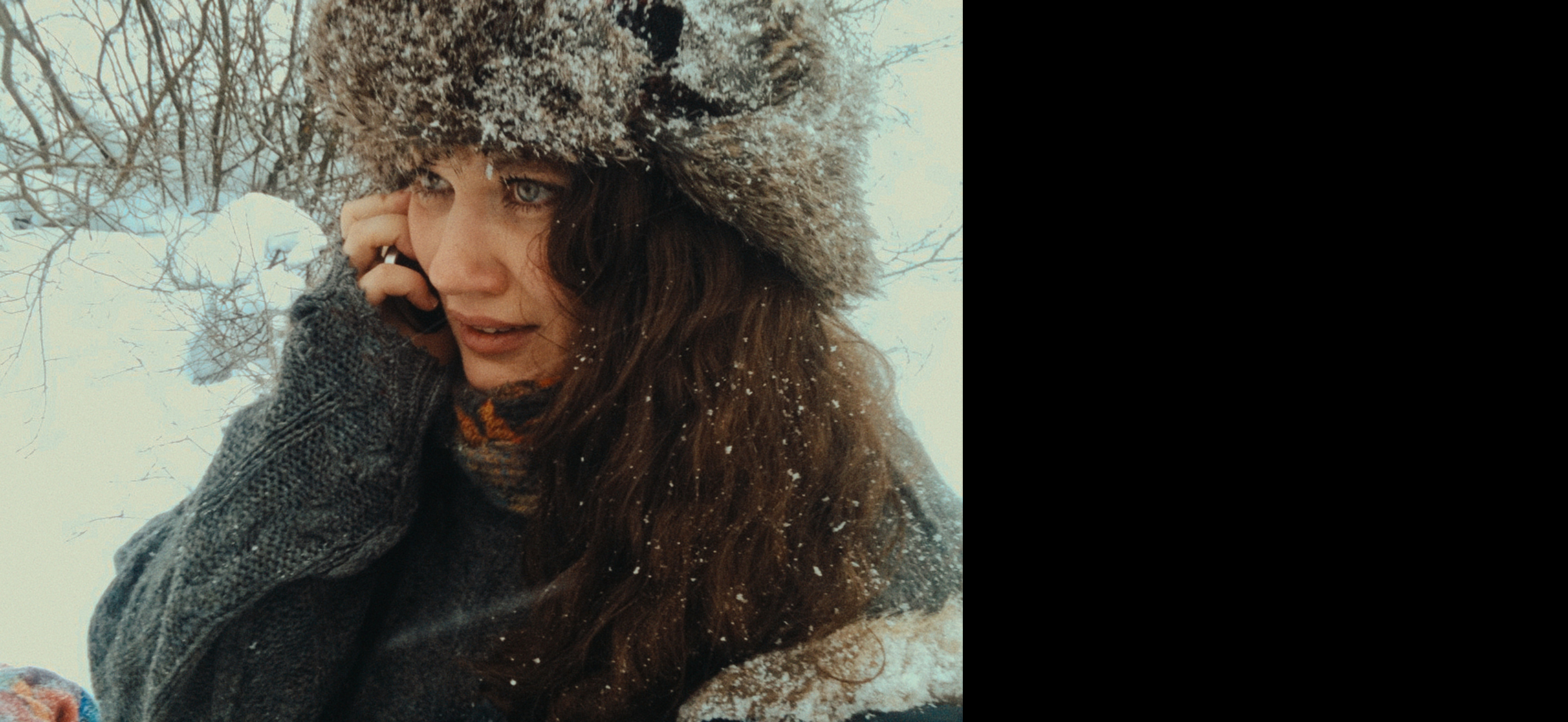A Portrait of a Mascha Schilinski
Mascha Schilinski © privat“Over the course of a century, as four girls from different time periods experience their youth on a German farm, their lives become intertwined until time seems to dissolve.” This is the logline of Mascha Schilinski’s film SOUND OF FALLING, which will premiere in the competition at Cannes Film Festival – the first German-language film to do so for many years. “It’s just wonderful, an incredible bonus for the film and everyone who worked on it for five years,” says the Berlin-based director. SOUND OF FALLING is Schilinski’s second feature film.She studied directing at the Filmakademie Baden-Württemberg from 2012 to 2021. Her first short film DIE KATZE (2015) was much praised at the Max Ophüls Preis festival, while her third-year graduation film (and first feature-length movie) DARK BLUE GIRL screened at the Berlinale in 2017. This family drama – for which Schilinski discovered Helena Zengel, who later became famous as a child actress in SYSTEM CRASHER – then toured 40-odd festivals worldwide and received several awards.
Mascha Schilinski and her co-author Louise Peter have already been awarded the Thomas Strittmatter Prize by MFG Filmförderung Baden-Württemberg for the screenplay of their current work SOUND OF FALLING. Schilinski sees the film, which is due to celebrate its world premiere in Cannes, as being about what lives on inside us through the ages. What defines us without us being aware of that? She wanted to create an associative stream of images connecting fragments of memory from all the characters on the farm. Because she asked herself, when on the farm in the Altmark where she later did the filming, who sat here before me, what sort of people have experienced this place in the past? She was fascinated by the simultaneity of time – the idea that someone could be doing something utterly mundane in a place where, not long before, another had lived through a moment of profound existential depth.
Together with Louise Peter, she developed the idea in philosophical discussions over three years: “We didn’t really know whether it would turn into a film,” the now 41-year-old director admits. From the very beginning – and against all the odds – she held onto her vision.
Schilinski collaborated with cameraman Fabian Gamper again to ensure that everything looked exactly as she had imagined: the two have been a team since her first short film. They tried out a lot of possibilities “in a very visual way,” the director admits. She wanted to break viewing habits. The finished film doesn’t work through the intellect, “you have to grasp it through the heart”. On set, she likes to surround herself with people she trusts and who also trust her. This is the only way to create a pleasant working atmosphere, “if you appreciate what the other person is doing”. A lot of effort went into casting all the roles, including those of the extras. Shooting in the wet summer of 2023 was a challenge, with the historical costumes, and the changes to the respective period, which they then had to shoot chronologically. But she didn’t want any compromises, says Schilinski, and she was supported unconditionally by her producers Maren Schmitt and Lucas Schmidt from Studio Zentral.
She was a ‘troublemaker’ at school and dropped out of her final year, wanting to pursue an urge for freedom. She travelled through Europe, wrote short stories, and performed as a magician and fire-eater in a small travelling circus in Italy. In 2008, she completed the masterclass in writing at Hamburg Film School and then worked as a freelance author in Berlin: “I wrote for telenovelas as well. In terms of content, I didn’t feel at home there, but it taught me to think of different dramaturgical possibilities quickly in my head.” She is interested in the child’s perspective because “children have such a hallucinatory power to seek out the empty spaces for which there are no words. They look at the world without preconceived notions.” She took this view to extremes for her new film by splitting it up into multiple perspectives. In the future, she hopes to be able to exploit many more of the possibilities and approaches offered by cinema. She can imagine directing a James Bond film as well as a series: “It’s a great gift to be able to realise a film that you long to see. To create a film that you have felt was missing, that you really wanted to watch. Whether you are successful is another question entirely – but that’s what it’s all about, narrative freedom – even if that means battling a headwind sometimes.”
Marion Meyer

